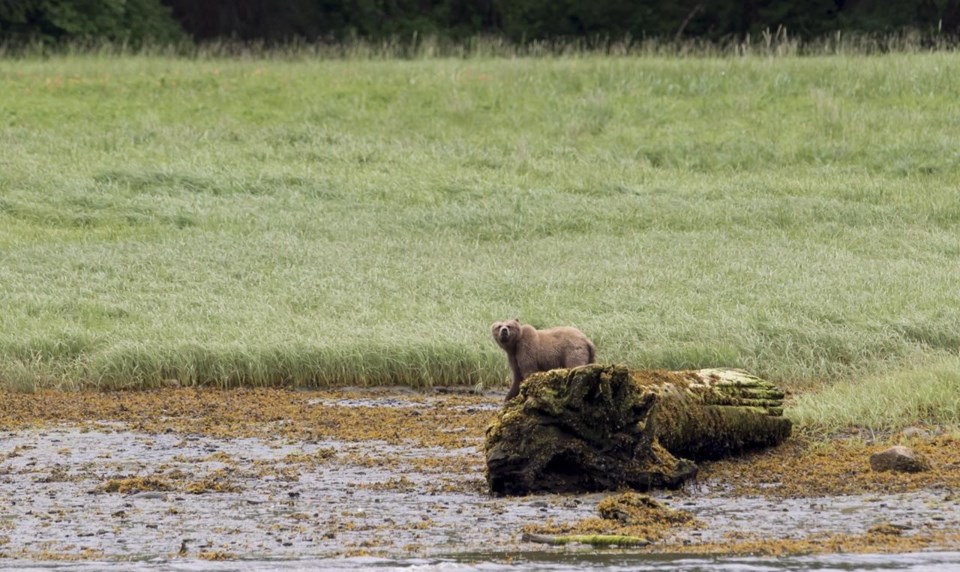BANFF, Alta. — Parks Canada says a grizzly bear that killed a couple and their dog in Banff National Park on the weekend was old, underweight and had bad teeth, but it will likely never be known what led to the fatal attack.
The two people were killed by a bear in a remote wilderness area — the first such fatalities recorded in decades in Canada's oldest and busiest national park.
The federal agency has not responded to interview requests since the attack, but it issued another statement Tuesday about the deaths.
"Out of respect for the victims and their families, Parks Canada is not releasing information related to their identities," said an email from Natalie Fay, external relations manager for the Banff field unit.
"The incident happened in a remote wilderness location and there were no witnesses. We will never know the full details of what led to the attack and will not speculate."
Parks Canada has said its dispatchers received an alert at about 8 p.m. Friday from an inReach GPS device about a bear attack west of Ya Ha Tinda Ranch, about 200 kilometres northwest of Calgary.
The agency immediately sent its Wildlife Human Attack Response Team to the area by ground, because weather conditions in the mountains prevented it from using a helicopter. The team arrived at about 1 a.m. Saturday and found the two people dead, the statement said.
Parks Canada said the team, which is specially trained in firearms and wildlife attack site investigation and forensics, encountered a grizzly bear that displayed aggressive behaviour and charged toward them.
"This is why there was no choice but to shoot and kill the bear on-site," said Tuesday's statement.
It said a necropsy was completed on the bear, and it was determined to be a non-lactating female estimated to be more than 25 years old and in fair body condition.
"Her teeth were in poor condition and (she) had less than normal body fat for this time of year."
The statement added that DNA samples from the bear confirmed it was responsible for the attack, and it was not collared, tagged or previously known to wildlife staff in the park.
Grizzly bear experts said this week that fatal attacks are extremely rare, but it's always a risk when people venture into the wilderness.
Parks Canada said there have been three recorded non-fatal encounters with grizzly bears in Banff National Park in the past 10 years, and no fatalities in decades.
The park, located in Alberta, is home to both grizzly and black bears.
A family friend of one of the two people killed said the couple was experienced in the outdoors.
Parks Canada said in its statement that the pair were on a backcountry camping trip and had the appropriate permits for the area.
"The individuals were also travelling with their dog, and we can confirm it was found deceased at the site," said the statement. "Two cans of bear spray were found at the scene and their food had been hung appropriately."
The statement did not say whether the dog had been on a leash or whether the bear spray had been deployed. Parks Canada notes on its website that off-leash dogs can provoke defensive behaviour in bears, and bear spray can be effective with some bears when used properly.
The agency said there was no bear warning or closure in the area at the time of the attack.
The Red Deer and Panther valleys from the Snow Creek summit east to the national park boundary and north to Shale Pass remain closed as a safety precaution until further notice.
This report by The Canadian Press was first published on Oct. 3, 2023.
— By Colette Derworiz in Calgary
The Canadian Press



